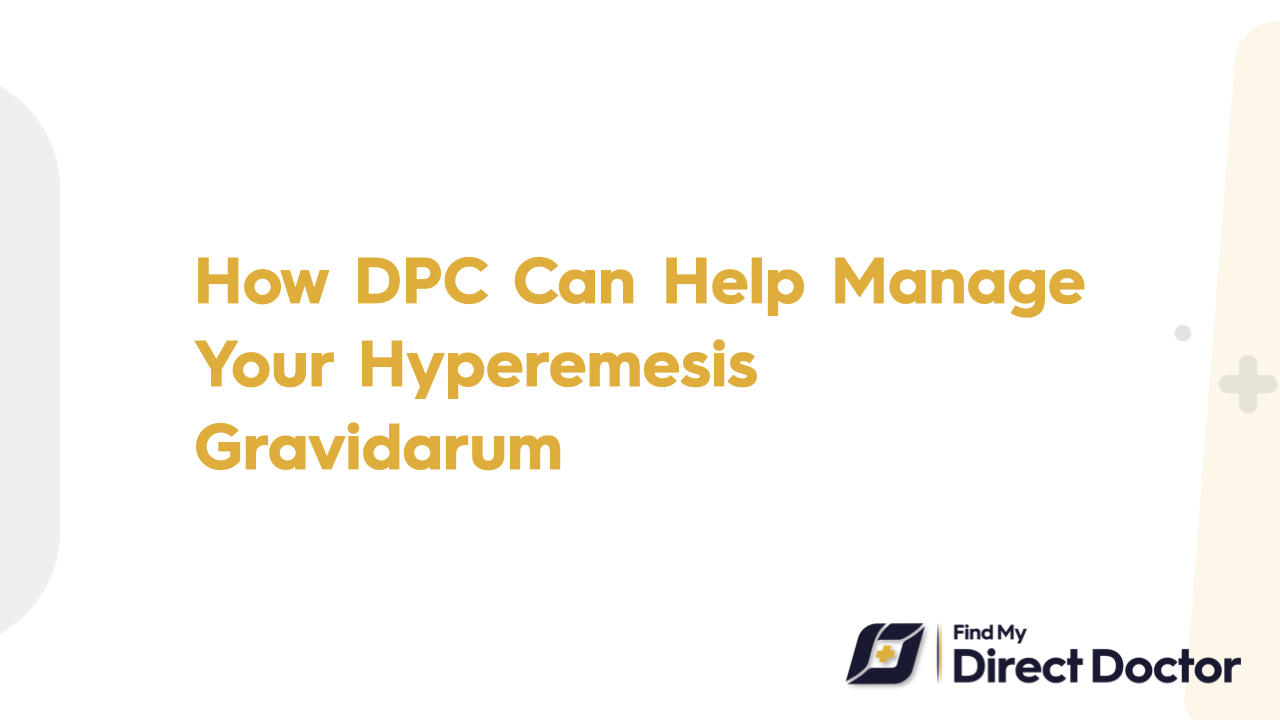



A severe kind of nausea and vomiting that goes much beyond the common morning sickness that many pregnant moms experience is called hyperemesis gravidarum (HG). Malnutrition, dehydration, and severe weight loss may result.

Dehydration, lightheadedness, loss of appetite, and nausea and vomiting that may last throughout the day are all signs of HG. Additionally, women with HG may lose weight quickly and have ketones in their urine. In severe situations, it can lead to issues for both the mother and the child, necessitating cautious care.
The perfect setting for treating hyperemesis gravidarum is Direct Primary treatment (DPC), which offers ongoing, individualized treatment that is essential for both mother and child. Expectant mothers can get routine checkups with DPC to keep an eye on their weight, general health, and hydration levels.
DPC providers can provide individualized treatment programs that include dietary changes to prevent vomiting, prescription medication to relieve nausea, and guidance on staying hydrated. DPC reduces the chance of problems by ensuring that patients receive prompt care when symptoms worsen through faster appointment availability.
Personalized, all-encompassing care is one of the primary advantages of DPC for patients with hyperemesis gravidarum. Patients gain from lengthier, more complete sessions with DPC, which enables medical professionals to fully comprehend their symptoms and concerns.
Additionally, DPC offers regular follow-ups, which are essential for tracking the pregnancy's development and the intensity of HG. This method guarantees prompt attention to any alterations in the situation. Furthermore, patients can speak with their doctor directly for guidance and assistance, which helps to reduce anxiety and uncertainty during a trying time.
Each case of hyperemesis gravidarum is addressed differently in DPC. In order to customize treatments that emphasize both short-term alleviation and long-term health, doctors take the time to learn about each patient's particular symptoms and medical background.
A variety of therapies, including antiemetic drugs, intravenous fluids to avoid dehydration, and nutritional counseling, may be used to manage HG. By offering resources and continuous assistance to help pregnant moms manage stress and uphold good behaviors, DPC also places a strong emphasis on preventative care. Women with hyperemesis gravidarum can manage their pregnancy with more assurance and support when they receive this individualized care.
Previous Post